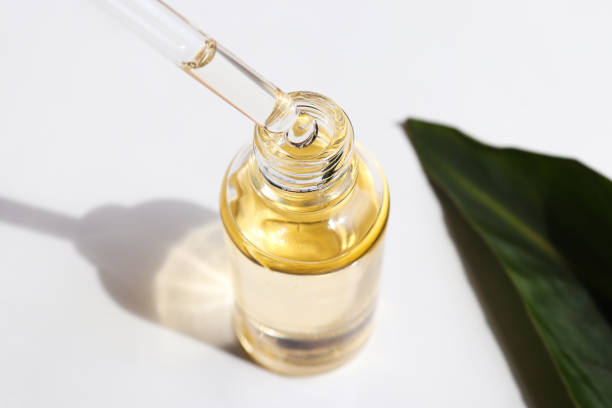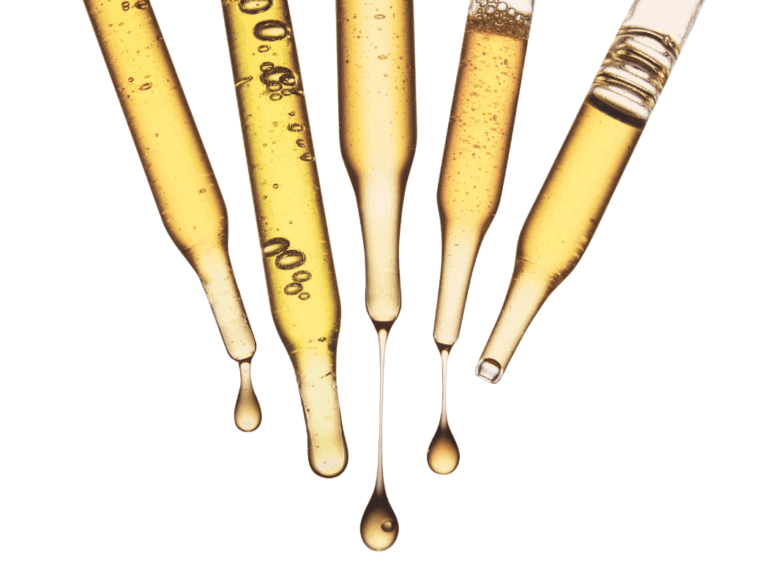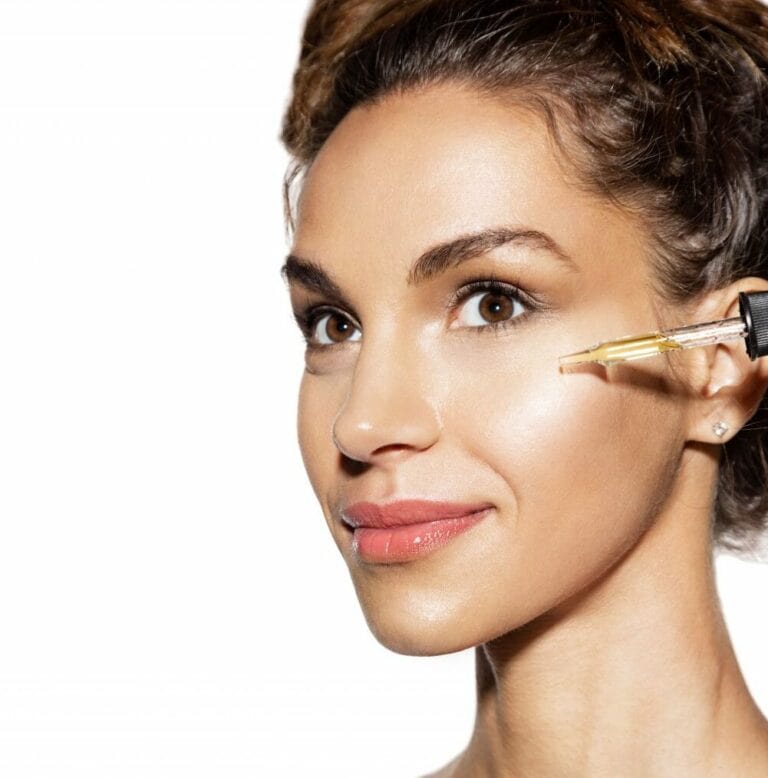Is Cleansing Oil Good For Your Skin?

What is cleansing oil?
At first glance, “cleansing oil” might sound pretty ironic. Many of us wash our faces with the specific purpose of eliminating oil. The word “oil” generally conjures feelings of uncleanliness. However, as with most clean skincare trends, there is more than meets the eye. Recent studies have shown that the use of oil-based products can be beneficial for the health of the skin’s barrier. This knowledge has triggered many popular brands to add a cleansing oil to their product lineup. But what exactly does it do?
The idea behind these products is that they protect the natural lipid layer of the skin. Our skin’s barrier contains sebum, or natural oils produced by our sebaceous glands. Although many people don’t like the sensation of oily skin, sebum is essential for the health of our facial dermis. In theory, cleansing oils can help to dissolve bacteria or pollutants while keeping the skin hydrated. People with any skin type can benefit from the use of cleansing oils. The important part is simply selecting the right product and knowing how and when to use it.
Who should use cleansing oils?
Theoretically, any skin type can benefit from the use of cleansing oils. The important part is making sure that you’re using the right products and implementing them correctly. Additionally, giving your skin time to adapt is an important part of any change in your routine. Although people with any skin type can use this method, it’s still essential to pay attention when trying new products and look out for any potential irritation. This will prevent any skin purging from happening.
Most people associate oil with dirtiness or breakouts, but it’s really the bacteria from makeup, pollutants, and the environment that cause clogged pores and acne. Recent research has shown that there are quite a few skin benefits of oils because of their soothing and healing properties. If you stick to oil products that are clean, they can actually help remove excess sebum, clear out dead skin, and clean clogged pores. Further, they don’t have any of the drying and irritating properties of other cleansers. There are different options available for people who have different skin types, so if you want to try out oil cleansing, it’s important to choose the right product for your own individual needs.

When and how do I use cleansing oils?
There are multiple ways to implement cleansing oils into your skincare routine. The simplest way to do this is to massage the product into your skin before or after wetting it. You can take a minute or two to make sure that the product is being absorbed and reaching the dirt and impurities that you want to dissolve.
Next, you should gently cleanse your face to remove the oil. Do this with a wet washcloth or just water in your clean hands. Once your face is clean, use moisturizer as normal. This step can replace your normal face wash system, both in the morning and at night. Implementing oil cleansing in this way is easy because it doesn’t add any extra time to your routine. Plus, this allows you the flexibility of switching out the product for any different oil that you prefer.
Double Cleansing
Another popular option for trying out this routine is called “double cleansing.” Double cleansing is a technique that comes from traditional Korean beauty practices. First, a cleansing oil is used in the same method as explained above. Next, you follow with a water-based cleanser. The idea is that the cleansing oil removes all the harmful impurities and bacteria on the skin, while the water-based cleanser removes any remaining sweat or dirt. Together, these two washes provide your face with a deep clean and help to maximize breakout prevention. Just like the singular cleansing method, double cleansing can be done one or twice a day and is particularly beneficial at night when your skin is the dirtiest. If you’re wondering how to get clean skin, double cleansing is worth trying.
It’s important to note that Korean beauty practices continue to influence American trends in many ways. One such trend is the idea of “glass skin,” or smooth, dewy, blemish-free skin that almost looks like it’s made of glass. Glass skin can be achieved in many ways, but a central part of this trend is using oil-based products such as cleansing oils and face oil to keep the skin as nourished as possible. Additionally, vegan skincare oil-based serums such as Plant Mother’s Vitamin C Serum can help you maintain a shiny and fresh facial look while “feeding” your skin with essential nutrients.

What should I look for in a cleansing oil?
As discussed, cleansing oils may be used by themselves or in combination with another face wash to achieve the “double cleansing” practice. As with any popular skincare trend, the practice of cleansing with oil has led to many new products appearing on the market. Most of the popular skincare and beauty brands now carry at least one cleansing oil in their catalog. However, not all cleansing oils are created equal and not every person’s skin needs the same ingredients.
When choosing an oil-based product, it is extremely important to pay attention to its comedogenic oil rating. When something is highly comedogenic, it means that it causes pore blockages and creates blackheads. There are hundreds of comedogenic oils out there, which means there are many ingredients to avoid when buying a cleanser. The good thing is that there is also a lot of information on the internet about which components to avoid. Not every person breaks out from comedogenic products, but it is generally safer to avoid products that do not contain these harmful oils.
Good cleansing oil ingredients
Additionally, the ingredients that you look for in a cleansing oil will depend on your skin type. People with dry skin will particularly benefit from the process of oil cleansing and should look for highly moisturizing oils such rosehip, sea buckthorn oil, bakuchiol, and avocado oil. Those with skin that is naturally oily should try product that have jojoba oil or argan oil, which are known to balance sebum production.
If you have sensitive skin, it is essential to avoid anything that might irritate your skin, such as castor oil. Argan, olive, rosehip, and jojoba oils are each “carrier oils”. The best ones are unrefined cold-pressed oils. These carrier oils are natural and safe for the skin, and other infusions should not be used without one of these. Most importantly, avoid oils that contain dyes or artificial scents. That’s typically the case with refined and mineral oils. These tend to be the most irritating on the skin.

What happens when you start using oil for cleansing?
Something that you might not expect to occur after starting to use a cleansing oil is skin purging. If you have recently started a new product such as a cleansing oil, you may notice your skin begin to breakout. This may seem counterintuitive, as you are doing things that will ultimately benefit your skin, but it is completely normal. Your skin needs to clean itself from time to time, and it does so by shedding oil, bacteria, and dead skin cells.
If you notice flareups and flakiness after starting a new cleansing routine, don’t worry. Skin purging should go away shortly, once the impurities are naturally removed. However, if your breakouts continue after two weeks, then they may be a sign that you need to change up the products you are doing. It seems confusing, but this is the way that your body’s largest organ takes care of itself! After a couple of weeks, your face should start to respond to your new skincare routine and you’ll be able to tell whether or not it’s right for you.
So, should I try it?
If you’re someone who struggles with surface level acne, feels like your face wash isn’t doing the job, or just wants to try something new, then a cleansing oil might be the perfect new addition to your routine. Cleansing oils are typically plant-based (avoid artificial mineral-based oils), packed with beneficial components, and often gently remove makeup.
As long as you make sure to choose a product that won’t irritate your skin or clog your pores, you should be able to benefit from this trend. Also, if you’re someone with sensitive skin who gets worried about irritation, don’t fret! You can always do a patch test with the product on your jawline to make sure you don’t suffer from any inflammation or itchiness.
Cleansing oils can be as low- or high-maintenance as you want them to be, as you can use them as a replacement for your face wash. If you’re feeling adventurous, test out the double cleansing method and see if you notice a difference in your skin. Whatever you do, just make sure that the products you purchase are as clean and plant-based as possible.
MEDICAL DISCLAIMER
This content is for informational and educational purposes only. It is not intended to provide medical advice or to take the place of such advice or treatment from a personal physician. All readers of this content are advised to consult their doctors or qualified health professionals regarding specific health questions. The publisher of this content does not take responsibility for possible health consequences of any person or persons reading or following the information in this educational content. All viewers of this content, especially those taking prescription or over-the-counter medications, should consult their physicians before beginning any nutrition, supplement, skincare product, or lifestyle program.
